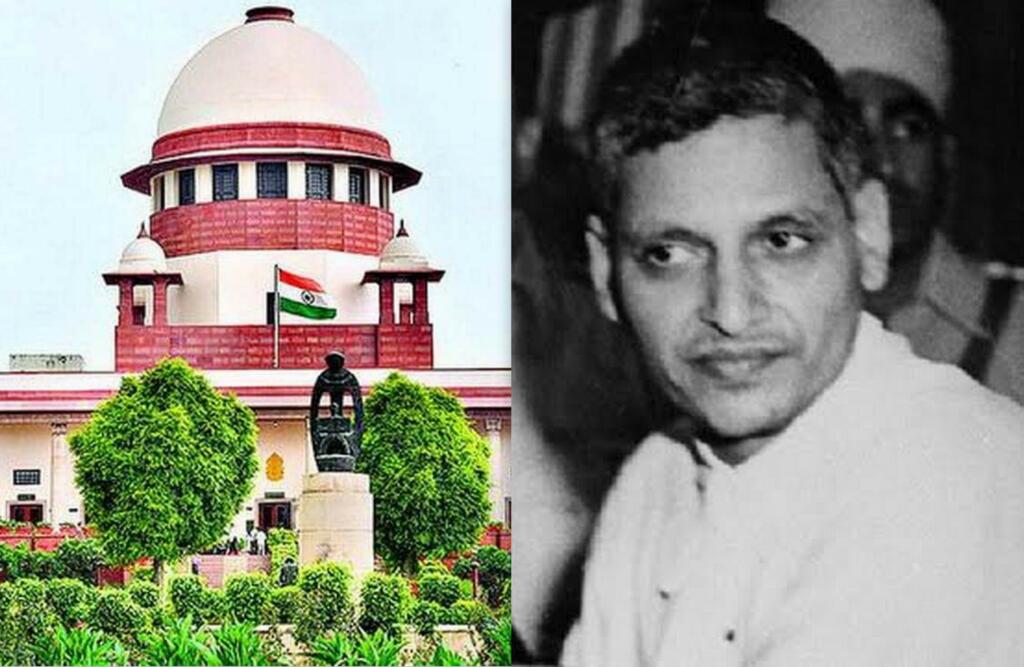For a major part of Independent India’s history, freedom of speech was effectively a privilege of those who were dear to the Left-Congress establishment. Things have changed in the last few years. Now, people can know the real story of Nathuram Godse, a villain for the left-liberal ecosystem.
Movie on Godse challenged in Supreme Court
A movie named ‘Why I killed Gandhi’ is in limelight for all sorts of reasons. The movie is an elaborate description of facts and circumstances which led Nathuram Godse to kill Gandhi.
However, not everyone was ready to hear Godse’s point of view. Mr Sikandar Behl filed a writ petition to stop the release of the movie. In fact, the petitioner’s urgency can be gauged from the fact that he directly approached Supreme Court, ignoring all other courts in the hierarchy.
Read more: The upcoming movie “Why I Killed Gandhi” is giving Congress nightmares
According to petitioners, the movie tarnished Gandhi’s image
Petitioner’s advocate Anuj Bhandari argued that if the movie is allowed to be released then it would tarnish the image of Gandhi. Bhandari told Supreme Court judges that movie makers have attempted to blame Gandhi for the partition of India and atrocities faced by the Hindus in Pakistan.
“Movie, why I killed Gandhi, was released yesterday. In the movie, Gandhi has been called “Napunsak”. Jokes are being made at Gandhi & the entire courtroom has been shown laughing at Gandhi. Gandhi has been called “Hara Hua Juwhari,”, submitted Bhandari.
Bhandari alleged that movie makers’ intention is to create communal disharmony, spread hatred and disturb the peace. Additionally, he also wanted Court to pass an order for effective regulation of OTT platforms as the movie was released on an OTT platform named ‘Limelight’.
Court refused to entertain the petition
The two judges Bench of Justices Indira Banerjee and JK Maheshwari refused to apply any brakes on the free distribution of Godse’s thoughts. Court did acknowledge that the petitioner’s feelings have been hurt.
However, the two-judge bench categorically stated that just because the petitioner’s feelings were hurt, does not mean that his fundamental rights had been violated. Honorable Court also suggested the petitioner to approach the High Court for the purpose.
Disagreement should not mean censuring
Up until now, only ‘historians’ and political analysts were asserting their reasons behind Godse’s intention to kill Gandhi. The movie is a change from that trend and allows the personal viewpoint of Godse to have screen space.
A majority of the Indian population is still unaware of Godse’s intent behind the killing of Gandhi. Gandhi’s status as the ‘father of the nation’ meant that anyone against his ideological position was automatically a monster for intellectuals dominating public conscience. The movie is a departure from that and whether you agree with it or not, everyone has the right to have his voice heard.
